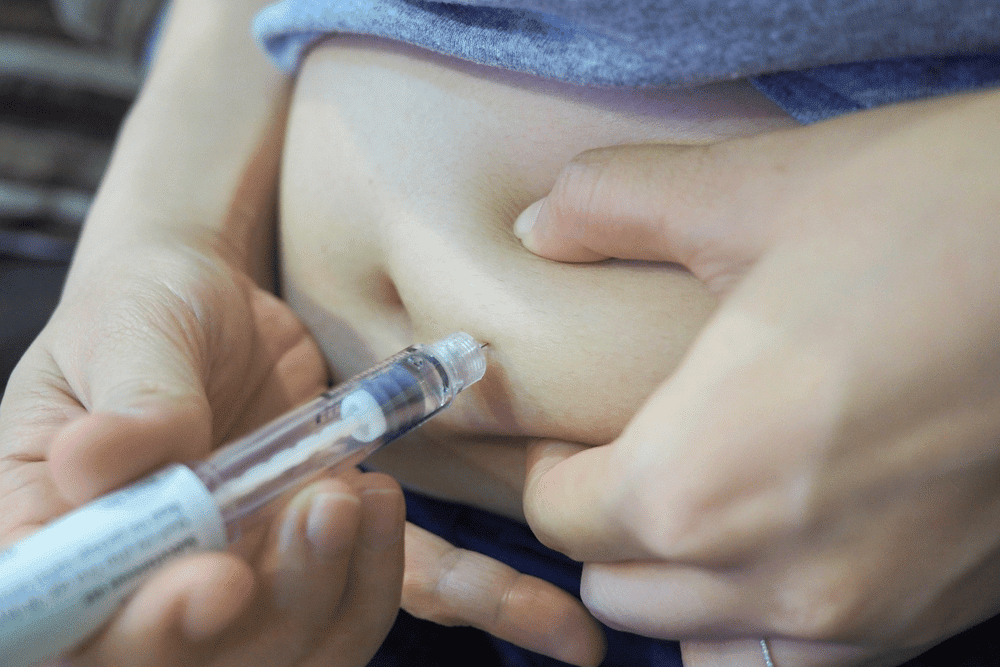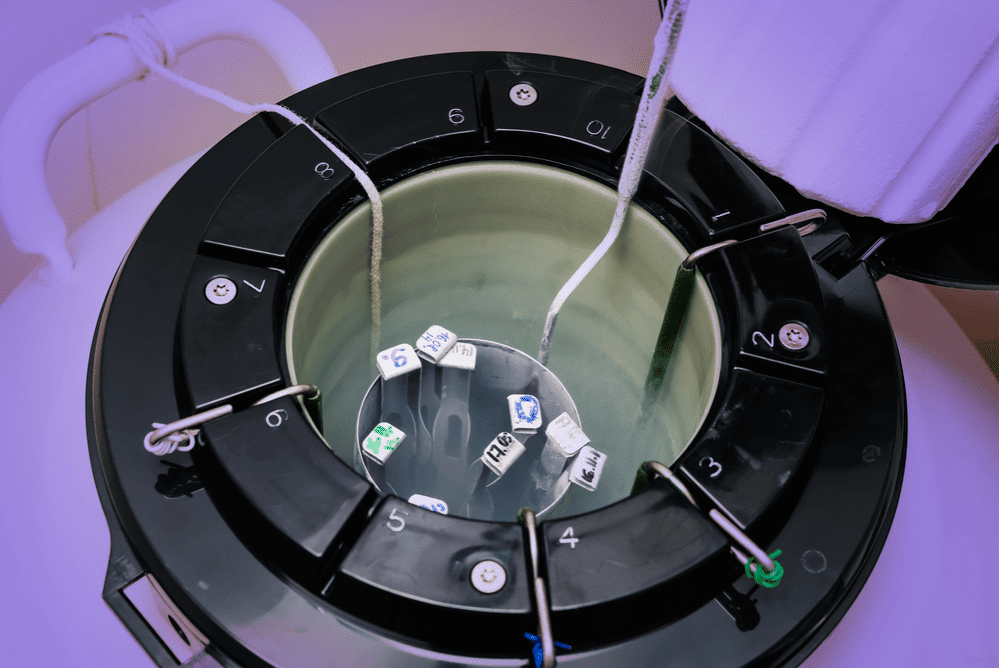
In a ground-breaking White Paper on Women’s Development released on 28th March 2022, the Singapore government has announced that women aged 21 to 35 will soon be able to opt for social egg freezing in Singapore regardless of their marital status.
This is a huge (and exciting!) change from existing criteria, where only women who are undergoing treatment known to affect fertility are allowed to undergo egg freezing i.e. for medical reasons.
Egg freezing is where eggs harvested from your ovaries are frozen and kept for later use. It is important to note that the younger you are at the point of egg freezing, the higher the chance of good response to ovarian stimulation and obtaining good quality eggs for storage. Good quality eggs have a higher chance of forming good quality embryos that then lead to successful pregnancies subsequently. This is different from embryo freezing, where eggs are fertilised with sperm to form embryos first before freezing.
Currently, egg freezing in Singapore is most commonly done when a woman in her reproductive age who desires children in the future is diagnosed with cancer and needs to undergo treatment e.g. chemo or radiotherapy which can potentially affect her future fertility.
Egg freezing in these scenarios (before she starts fertility-affecting treatment) can help preserve her fertility and potentially allow her to have her own children after recovering from cancer.
However, women facing these scenarios may not have the awareness of this option, the mental preparedness in deliberating about future children in the face of a new cancer diagnosis, and/or the luxury of time to defer cancer treatment (as egg freezing requires some preparation work).
Those who do wish to consider medical egg freezing in these scenarios typically need to undergo:
In other cases, egg freezing is done for social reasons i.e. a woman who is advancing in age and desires children in the future but has not found a suitable life partner yet.
This is because women are born with a finite number of eggs and the number and quality of these eggs decline with age. This process of “elective” or “social” egg freezing is not allowed in certain countries - until recently, Singapore was one of them, forcing many women in such situations to travel overseas for this purpose.
As of early 2023 though, women aged 21-35 will be allowed to undergo social egg freezing in Singapore, with the introduction of the Assisted Reproduction Services Regulations under the Healthcare Services Act.
They will however be required to undergo counseling to make sure that they understand the risks, success rate, costs and invasive nature of egg freezing before going ahead with the procedure. This marks a drastic change from Singapore’s typical conservative approach, and may pave the way to allowing older women to have children later on in life - something that was not possible previously.
To ensure you are in good health to undergo the process of egg freezing and to be a potential parent in the future).
To check for conditions that may affect your fertility.
This typically includes blood tests for anti-mullerian hormone (AMH) and follicle stimulating hormone (FSH), as well as ultrasound scan for antral follicle count (AFC).

e.g. HIV/Syphilis/Hepatitis
Ovarian stimulation
This involves hormone injections (self-administered at home) to stimulate the development of more than 1 egg at the same time. Further injections are required to prevent premature ovulation, and to help with maturation of the eggs.
Ovarian monitoring
This involves regular ultrasound scans to monitor follicle growth and blood tests to measure your hormone levels – this allows your gynaecologist to adjust your injection doses according to your response.
Egg collection (oocyte retrieval) and freezing
This is usually done as a day surgery under general anaesthesia. A fine needle is inserted through your vagina under ultrasound guidance to tap on your follicles for egg collection. This takes 15-30 minutes. These eggs will be checked for quality and maturity, and suitable ones selected for freezing. The most common method is vitrification, where cyroprotectants are used to prevent formation of ice crystals during rapid cooling. This ensures a higher survival rate of the eggs when thawing later on.
Storage of frozen eggs
Your eggs are kept frozen in the laboratory until the time you need to use them.
After vitrification, the frozen eggs are kept in the laboratory in tanks of liquid nitrogen. Once you are ready to use them, the eggs will then be thawed and injected with sperm to form embryos, which will be transferred into your womb (uterus).

There is technically no limit as to how long the eggs can be kept frozen for, as unlike in the body where advancing age results in poorer quality and few quantities of eggs, the frozen eggs have essentially been “frozen in time”.
Although there are no official records yet on the oldest frozen egg that has successfully resulted in a pregnancy, the oldest frozen embryo known to result in a baby is 27 years old1. This gives you an idea of how far along freezing techniques have come all these years!
There will also be several decisions you need to make for your frozen eggs, namely:
You will also need to understand that in order to conceive with frozen eggs, you will need to undergo the rest of the in-vitro fertilisation (IVF) process when you are ready to use your (thawed) eggs.
As the process of egg freezing involves ovarian stimulation, there can be potential risks to women undergoing this. One risk is ovarian hyperstimulation syndrome (OHSS).
Most women usually end up with mild OHSS, but some may experience severe OHSS that may be potentially life-threatening. Symptoms of OHSS include:
In severe cases of OHSS, you may require hospitalisation and treatment.
Oocyte retrieval is performed under general anaesthesia, risks include side effects from anaesthesia, and procedural risks include pain, pelvic infection, injury to surrounding organs such as bowel, bladder or major blood vessels.
These risks are typically low as oocyte retrieval is performed under continuous ultrasound guidance by trained specialists.
There were previous concerns over theoretical risks of cancer development later in life from undergoing assisted reproductive techniques (ART); thankfully recent studies have not demonstrated this.
However, it has been shown in a recent Lancet2 publication that babies conceived from ART do have an increased risk of birth defects, and this risk is partly attributable to infertility itself, certain ovulation induction regimen and multiple pregnancies induced by ART.
Ultimately, the major risk of egg freezing is that it may not result in a successful livebirth in future.
Unfortunately, having frozen eggs in storage does not necessarily guarantee your success for pregnancy and livebirth in the future. According to a report released by the Human Fertilisation and Embryology Authority3, women aged 35 years and below who froze their eggs had a 15% successful thaw cycle versus 12.5% for those who froze their eggs aged 40-42.

In terms of a birth, for eggs frozen under 35, there was a 27% chance of a birth compared to just 13% for eggs frozen over age 35. This is the reason why Singapore has restricted social egg freezing to women aged 21-35 years old.
You should know that there is a “drop-out” rate at every stage of IVF - not every frozen egg will survive the thawing process, not every thawed egg will successfully form an embryo after fertilisation with a sperm, and not every embryo that is transferred into the uterus (womb) will result in a successful pregnancy and livebirth.
Even if you do conceive successfully with your frozen egg, it is important to note that older mothers face an increased risk of pregnancy complications overall.
The cost of egg freezing does not differ between medical and social reasons - it can cost $10,000 and above for 1 cycle. The cost will vary depending on the dose of ovarian stimulation drugs - think of it as an expensive lottery ticket - you will need to do prior financial planning before embarking on this journey.
Aside from the financial cost, there will be emotional and mental “costs” to egg freezing as well; not everyone will end up having many good quality eggs at the end of the process for freezing, as the response of each individual woman will vary.
You may have to be prepared to undergo at least a few cycles of egg freezing to ensure that sufficient mature eggs are obtained for freezing to give you a reasonable chance of success.
Also, at the end of the day, you may ultimately end up not using your frozen eggs as circumstances may change.
The rates of frozen embryos resulting in successful pregnancy is higher than that of frozen eggs - simply because:
In other words, you will need to start off with a higher number of frozen eggs compared to frozen embryos to have the same chance of a successful pregnancy.
From a non-statistical point of view however, egg freezing can be better for women as it offers more autonomy. As the process of egg freezing does not require sperm, this becomes an empowering, viable reproductive option for single women who do not have a partner.
Freezing eggs rather than embryos can also help avoid dicey situations when couples split subsequently, with differing opinions on what to be done with the frozen embryos.
There are still gaps even with the latest move by the Singapore government though, as only legally married couples will be able to tap on their frozen eggs for reproduction. This means that women looking to set up a single-parent household with their frozen eggs will still face difficulty doing it in Singapore - for now.
Ultimately, the choice is yours, and the procedure that is best for you depends on what your current life situation is and what your ultimate goals are.
This article was updated on 22 April 2022 by Dr. Ng Kai Lyn.